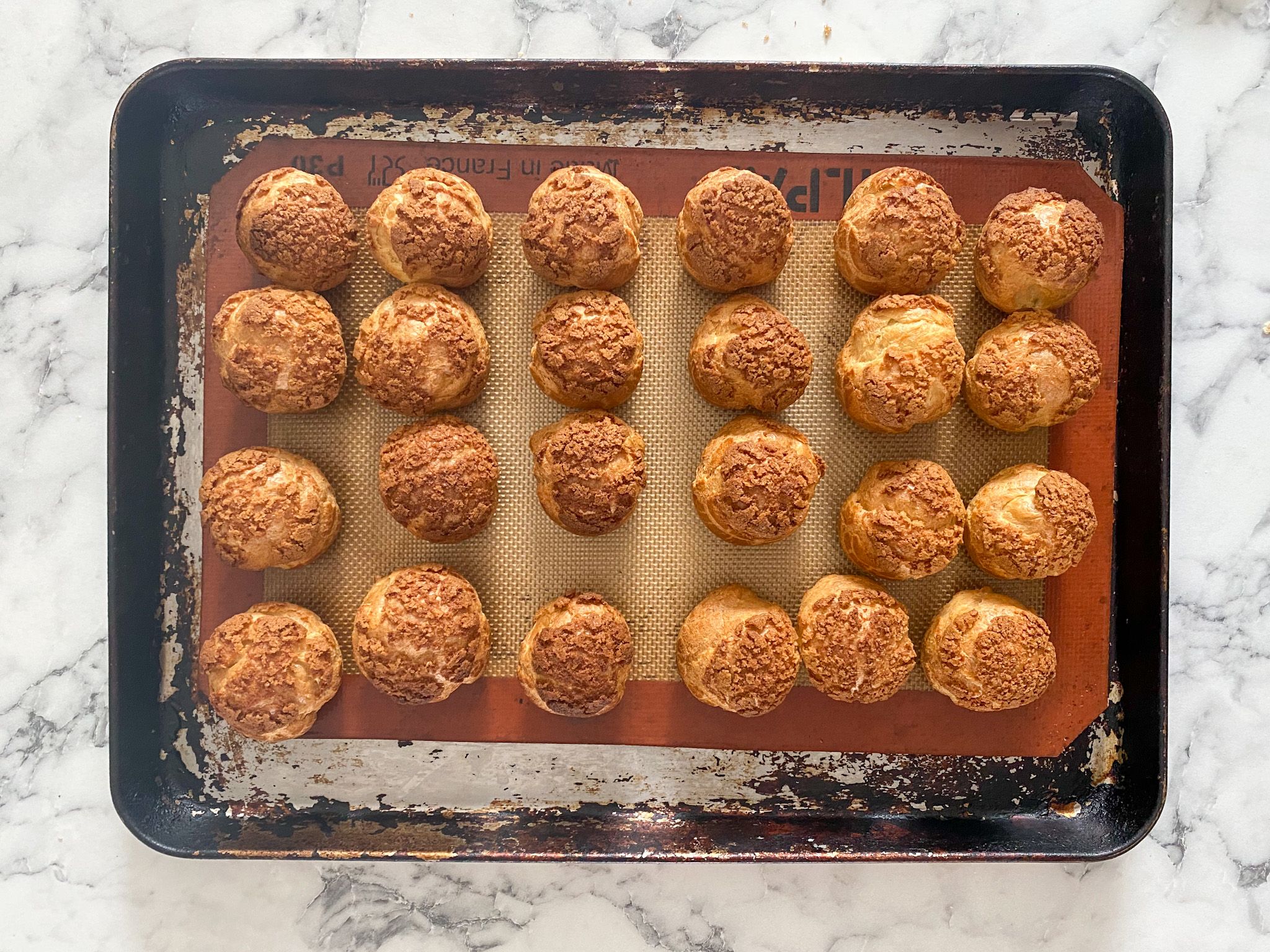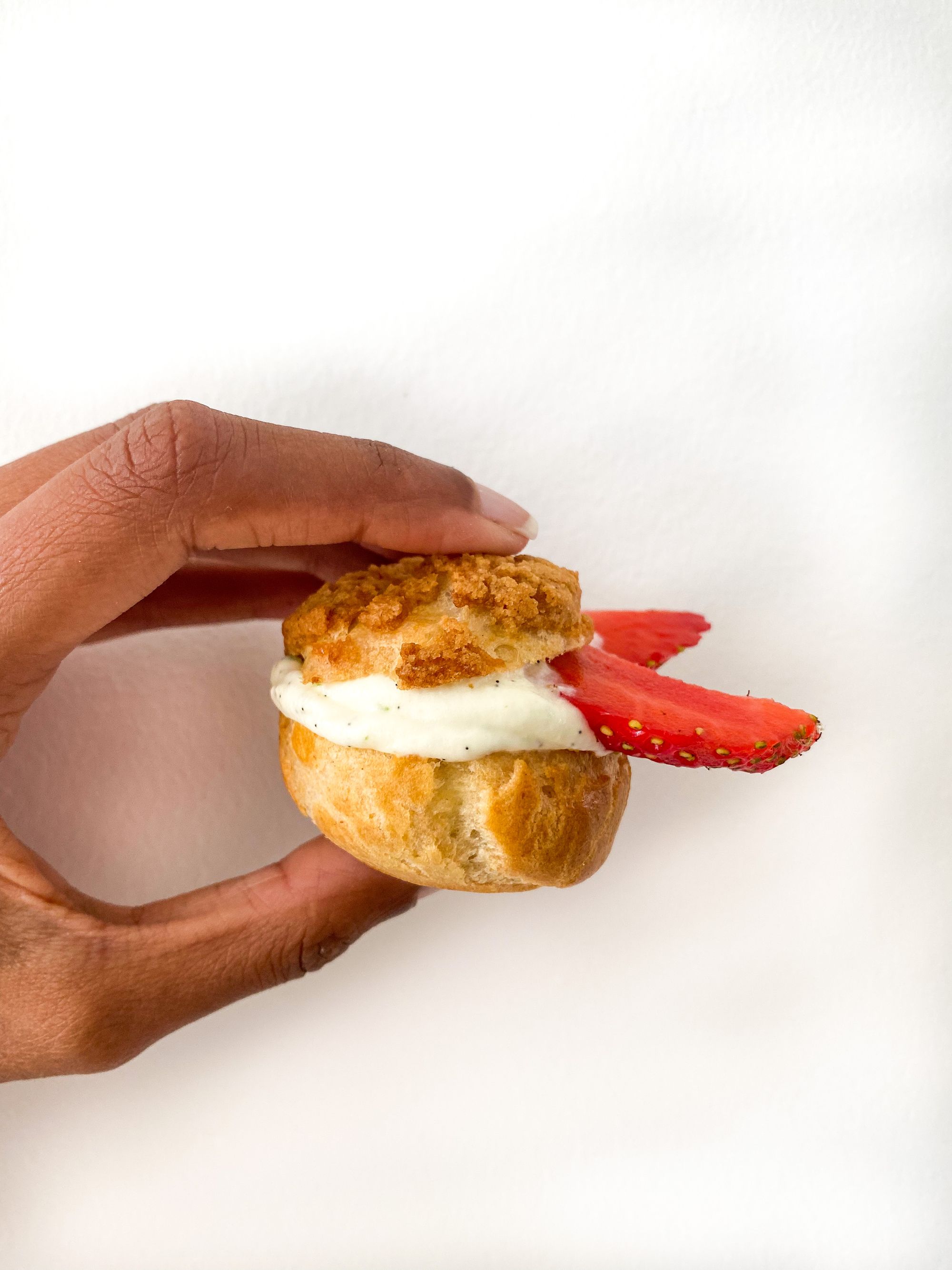
She's a ten but she turns on the oven when it's 38 degrees outside.
Turning on the oven in a heat wave sounds straight up insane. But every restaurant right now is doing it; during we did it too. The thermostat would creep up and we'd watch, but only for a second because we had crostatas to bake. It was hot but the show must go on.
It's fucking hot in the UK.
As someone who spent many summers in India, I thought I'd be better prepared for this heat. But then I remember that I am actually from California, a state with no seasons and historically almost no extreme temperatures (fire season has changed this now, because climate change). When I did travel to India, I was useless. I'd lay on the faded linoleum floor in nothing but a tank top and chaddis, hair in a tight braid, whirring a tiny blue fan in front of my face for as long as the battery would sustain it, as air conditioning was expense we couldn't spend on. I'd eat bowls and bowls of yogurt, sometimes sprinkled with chaat masala and chopped cucumbers, but often just plain because I couldn't wait even two minutes for my aunty to prepare it.
I'd eat so much yogurt that my aunty couldn't make a fresh batch fast enough. Our fridge in India is smaller than my British fridge, which makes it even smaller than my fridge in the US. I'm certain that three Indian fridges could fit into one American fridge.
Milk arrived every morning via a milkman who collected it from the villages outside of town. He poured it into large steel canisters and attached them onto his motorcycle as he made his way to us. Since milk was not a regulated industry, it wasn't commodified, so you couldn't just go the store and buy gallons of it, at least not in a second-tier city. You got whatever the village cows produced that day, and if you ran out, you got more the old fashioned way—by asking your neighbours for some. All this meant that not only could you not make huge batches of yogurt everyday, but if for some reason you bugged your neighbours enough to do so, there'd be no space in your fridge. Moreover, yogurt takes several hours to ferment and then several more hours to chill so it's cold enough to soothe your greedy little body.
Now, as I sit in my non-air-conditioned London flat, I try to mimic what I learned in India. I lie on the floor, but my floors are wooden, which retain heat. They're great for the colder months that the UK boasts for ten months a year, but right now, I hate these floors. I am in a tank top and chaddis, but it's not as much fun without my trust electric fan. My hair in a braid, but it's also been falling quite a bit over the last few weeks. I am not cooling down. Instead, I am heating up even more as I manically google whether hair falls more during hot weather (it doesn't) and if my body can become stressed before my mind does and is trying to tell me so by ejecting hair follicles from my scalp (it can).
Worst of all, I am out of yogurt.
But I'm not going to talk about how to make yogurt today. There are loads of resources online on how to do that and to be honest, the best way to learn is having an aunty show you how. Maybe one day I'll ask my mom to record a video and I'll send it out here, but not today.
Today is about how to keep cool.

Yogurt keeps you cool because milk is more hydrating than water. It retains longer in the body and has more nutrients like sodium, and potassium, which are key for regulation. Almond and oat milk do not naturally contain these minerals but are often fortified with them; you can check the nutrition label when grocery shopping. Potassium ensures your cells are properly filled with enough fluid, while sodium ensures everything outside your cells has enough fluid. Hot weather aside, this is very important if you do any sort of sports, especially endurance sports like running, which is what I do. If I'm not properly hydrated, I will not have a good run and I won't recover as quickly after a run.
The good thing about milk is that there are loads of ways to have it (sorry to my lactose-free friends!). And since I'm very out of practice in making yogurt (sorry to my mom!), I'll instead put on my pastry chef hat and just whip some cream instead. It's way less work thanks to my KitchenAid, it tastes better than milk because fat, and I can throw in vanilla bean seeds and lime zest for added refreshment.
Most dairy products go well with fruit, and it is undisputed fact that the best fruits occur in July. So as the cream whips, I slice up whatever I can find in my fridge—strawberries, mangoes, maybe even some cherries. We're getting wild.
Now comes the vehicle for all this zesty cream and fruit. I could just it mixed together in a bowl Wimbledon-style, but I've got another idea. I'm going to go against all hot-weather logic and turn on the oven.
Turning on the oven in a heat wave sounds straight up insane. But every single restaurant right now is doing just that; during my kitchen days, we did it too. The thermostat would creep up degree by degree and we'd watch it, but only for a split second because we had crostatas to bake and ice cream to spin. And anyways, hot weather was nothing compared to a preheated oven, which we stuck our hands and sometimes our heads into dozens of times over a shift. It was hot but the show must go on. And after all that sweat and the occasional tear, something happens— we'd created beautiful desserts that made people happy no matter how stressed or overheated they were.
Heat transforms things. It hurts, burns, and frustrates, but from all that, new things happen. In pastry, a hot oven turns soft dough into crispy, caramelised delights. And right now, this godforsaken #Heatwave2022 is uniting people around the world. We're swapping tips, some serious, some in jest. We're hydrating with yogurt and ice cream and fruits and good old water. Maybe we'll even do something about climate change. Too much to ask?
Ah, and for what I turned on my oven for, I made choux. More on that and the recipe for my paid subscribers. If you sign up now, I'll personally send you the recipe and all my notes along with it.


